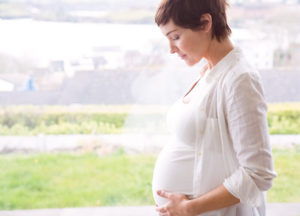Important facts about how age impacts fertility
 In a time when so many women are waiting until later in life to begin their families, it has never been more important to understand how thoroughly your age impacts fertility. Whether you are just thinking of starting a family or have been on this journey for quite some time, there are some important facts that you should know.
In a time when so many women are waiting until later in life to begin their families, it has never been more important to understand how thoroughly your age impacts fertility. Whether you are just thinking of starting a family or have been on this journey for quite some time, there are some important facts that you should know.
While male fertility remains largely unchanged by age, women experience a drastic decline in their fertility beginning in their 30s, especially after the age of 35. While at the height of her fertility, a healthy woman has a 20% chance of conceiving each month. But, by the time she is 40, this number will decrease to only 5%. Unfortunately, many women are unaware of this decline in fertility until it is already underway. There are often questions of how or why this shift occurs so drastically, and there are two primary answers: egg quantity and quality both decrease.
Quantity and quality of a woman’s eggs define how age impacts fertility
As a woman ages, the number of remaining eggs falls. In fact, every month from 20 weeks gestation in utero, throughout the course of her life, thousands of a woman’s eggs will die daily. Unlike men, who continue to produce new sperm throughout their lives, women are born with all of the eggs that they will ever possess. As this loss of “ovarian reserve” occurs, the follicles become more resistant to follicle-stimulating hormone (FSH), requiring more stimulation for ovulation to occur. Eventually, the follicles will be unable to ovulate consistently and irregular cycles will result.
At the same time, as the ovarian reserve is being depleted, the quality of the remaining eggs begins to lower as well. This starts to happen most notably when a woman is in her mid-to-late 30s. Lower quality eggs often do not contain the appropriate number of chromosomes, having either too few or too many. For this reason, the risk of miscarriage or having a child with Down Syndrome increases.
When considering these two factors along with other elements that may occur such as endometriosis or polycystic ovarian syndrome (PCOS), it becomes very clear as to why women experience so much more difficulty becoming pregnant and avoiding miscarriage as they age.
A simple test can tell you so much
Knowing more about your current fertility and how your age has impacted it can help you make plans for a future family. One simple blood test, called AMH, anti-Mullerian hormone test, can provide an estimate of your remaining egg supply. AMH is produced in the very immature egg follicles found in a woman’s ovaries. The levels of AMH in the blood indicate the approximate number of follicles remaining in a woman’s ovaries.
Knowing your AMH level is the foundation of your family building plan. With this knowledge, you can be proactive in deciding when is the right time to start thinking about a family. While an AMH test can’t predict your ability to get pregnant, it can help you and your physician develop a treatment plan to maximize your chance of having a baby. If your AMH is low, then it is one indication that it may be more difficult for you to get pregnant. With this valuable information, you and your doctor can make more informed decisions about your path forward.
A fertility specialist can recommend a treatment plan
While the road to a successful pregnancy may be more difficult for a woman beyond her early 30s, there are still helpful steps that can be taken and treatment options that may be considered. If you are 35 or older and have been trying to conceive for at least 6 months, you should schedule an appointment with a fertility specialist. They will be able to perform specific tests, allowing them to make the appropriate diagnoses and develop a treatment plan.
If you are not quite ready to begin your family, but know you want to in the future, we strongly recommend you consider egg freezing. Freezing your eggs while they are younger and healthier and more plentiful can help you put the brakes on declining fertility as you age.
Fertility Answers offers a skilled staff, laboratories, and specialized units to make the evaluation and treatment of infertility a smooth process. Furthermore, we are acutely aware of the physical, financial and emotional strain that comes with infertility. If you are ready to see a fertility specialist, or if you simply want to learn more about our practice, contact us. We are ready to help.


